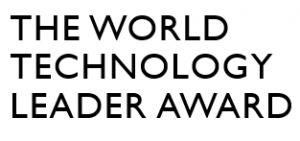Universities that published high-impact research on Covid-19 have soared up the league table, with China reaping the most rewards.
Universities that have published medical sciences research relating to Covid-19 have seen a significant boost in their citation impact, according to the latest Times Higher Education World University Rankings, but it is unclear whether the pandemic will reshape or entrench existing hierarchies in global higher education.
Analysis by THE’s data team identified that 19 institutions saw a notable rise in their citation impact score between the 2021 and 2022 editions of the ranking after publishing medical papers relating to Covid-19. Eleven of these institutions are in mainland China, while one is in Taiwan and another is in Hong Kong. As a result, mainland China now has the joint fifth highest number of institutions in the top 200 (10, up from seven last year), overtaking Canada and on a par with the Netherlands.
This is the first evidence that universities’ research on the virus is having an impact on rankings. The 2022 edition of the table, published today, draws on data on research published between 2016 and 2020 and citations made between 2016 and 2021.
The institutions with the biggest jump in citation impact score in absolute terms are Capital Medical University, Wenzhou Medical University and Wuhan University, all of which are in mainland China and saw a score increase of more than 30 points.
The citations boost is part of a broader trend of continued improvement for China. However, most of the country’s recent progress has been among its elite universities. If less internationally known institutions also continue to rise in future years following the publication of influential pandemic-related research, then it could supercharge China’s progress.
The nation now has two universities in the top 20 for the first time: Peking University and Tsinghua University share 16th place, after rising seven and four places, respectively.
David Watkins, head of data science at THE, said the citations effect was “to be expected given that Covid-19 has had such an impact worldwide”.
“Research into the disease, and especially work on vaccines, was heavily funded and prioritised, and some papers have attracted more than 20,000 citations within a year of publication,” he added.
“Because THE uses a five-year window for publications, we believe that this effect will remain noticeable in the rankings for some time, and it is likely that other Covid-related effects, such as reputational impact (both positive and negative) and income, will also become visible.”
Jenny Lee, professor at the Center for the Study of Higher Education at the University of Arizona, said the “more dramatic” citation changes were probably driven by the fact that “specimen and case data were especially present in China upon the onset of the pandemic” and that “major publishers committed to open access for Covid topic publications”.
“For the long term, I expect that the rise in citation impact will steadily continue beyond the current pandemic, mostly because China is already the global leader in scientific publications. China also continues to collaborate globally, across fields, which also leads to higher citation impact,” she said.
Caroline Wagner, Wolf chair in international affairs at Ohio State University, who has co-authored research on international collaboration patterns in Covid research, said “the first three or four most important articles that came out on Covid were all from China”.
“They identified the genome and the initial symptoms, and they have thousands of citations, which is very unusual for a one-year-old article. After that, we saw China and the US and China and Europe collaborating. We see citations to those works also being very high,” she said.
As a result, Dr Wagner said the pandemic had increased the visibility of some institutions that were less well known before the crisis – in particular Wuhan University. However, Covid-19 had mainly boosted the reputation and visibility of elite institutions, she added, meaning it was unlikely that the pandemic would reshape the hierarchy of global higher education.
A recent study, co-authored by Dr Wagner found that the majority of China’s Covid-related citations were for papers where Chinese institutions had collaborated with leading universities in the US or the UK.
“A lot of citations went to the early Covid research, but they went to more elite universities in general. Citations were limited to a smaller set of institutions than we would usually see,” she said.
“You don’t have time to vet all the information yourself and to read every article, and so we tended to look towards those with a higher reputation to begin with…so in some ways, it’s just instantiated the elite structure that was already there.”
Dr Wagner added that the citations boost for more obscure institutions would probably decline significantly, although it would depend on “how foresightful they are in continuing to put resources towards Covid”.
Simon Marginson, professor of higher education at the University of Oxford, said “universities researching coronaviruses will receive an ongoing boost from that fact, although its impact on research performance will plateau”.
“This branch of research will be increasingly competitive in future, partly because the commercial competition (vaccines) will increase over time,” he said.
He added that Covid-19 research was likely to be more explanatory in relation to the citation jumps in the specialist medical universities than in the “big comprehensives”, such as Tsinghua, Zhejiang and Fudan.
Regarding how research and citations performance could play out in global higher education in the coming years, Professor Marginson said that there were three concurrent changes to watch out for: continuing growth of science outputs and citations in China and Singapore; possible disruption of US-China collaborations because of geopolitics; and Covid-related upheavals in medical research.
“It is very difficult to know how these effects will net out. There could be sharp changes year by year or the effects could cancel out to some extent,” he said.










